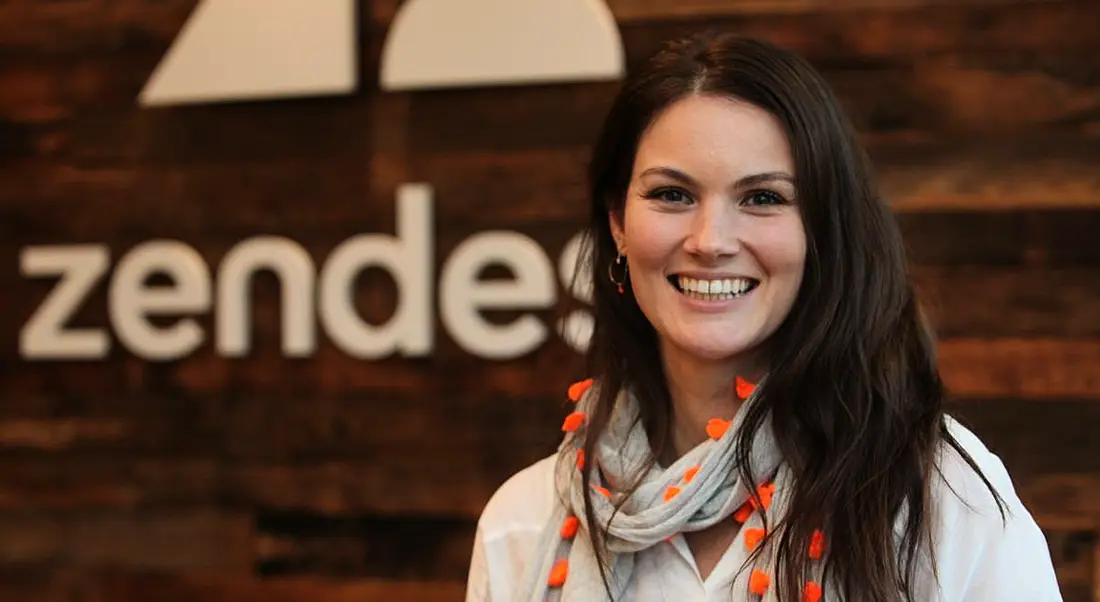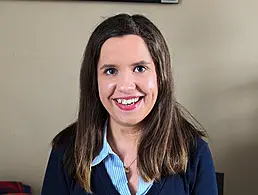The tech industry is becoming more diverse, and we are showcasing that diversity with an insight into the life of a software engineer.
Diversity has been a problem within the tech industry for a long time but that’s starting to change. Many companies are getting away from the stereotypical ‘stale, pale, male’ candidate.
Here at Siliconrepublic.com, we like to seek out the real faces of science, technology, engineering and maths (STEM) – those who don’t fit the stereotype and those who show how diverse the STEM industry can really be.
Elaine O’Carroll is a senior software engineer at customer service tech firm Zendesk. She spoke to us about her career, what her day-to-day job is like and the challenges she has faced.
What drew you to software engineering?
To be honest, the initial decision was not obvious for me. I remember being very unsure when filling out my CAO.
I eventually weighed up my likes and dislikes and decided to apply for a computer applications degree. I always liked maths at school and I like logical straightforward thinking.
I knew that I didn’t want to be doing anything too philosophical or writing long-winded essays. I wanted to do something practical and have a college course where I would learn a skill.
Once I started my degree, I knew I would like a career in software engineering. Researching, finding and writing solutions is very rewarding. Also, the feeling of creating something new on a daily basis is great.
What’s the best thing about working in software engineering?
As I mentioned above, the best thing about working in the area is the job satisfaction. There is always something new to learn, or a new direction to go. The industry changes and evolves so quickly that it rarely gets stale and boring.
What’s the most exciting development you’ve witnessed in your sector since you started working in it?
For me, the most exciting development has to be the iPhone, and smartphones in general. I can’t even imagine a time where I didn’t have Google Maps, Skype, WhatsApp, Zendesk etc so easily accessible to me at all times.
When the iPhone entered the market, I remember feeling that it was so different to every other phone. The iPhone was much bigger than most other phones; it seemed to kill the trend of having as small a phone as possible.
It had a touchscreen and made the internet really easy to use, with apps. Overall, it really was a standout development for me.
What aspect of your job did you struggle to get to grips with?
I guess the eternal struggle in software development is when to add new features versus making the existing product more stable and reliable. Customers always want more features, and it is important to provide that. You don’t want your product to be left behind.
But it is also important to ensure the current product you offer is reliable. Customers’ businesses rely on that.
Reliability requires constant measuring, monitoring, tweaking and improvement as the system changes and develops. There is a balance there, but I suppose finding that balance is something I often find myself struggling with or questioning.
What’s been the hardest thing you’ve had to face in your career?
I’ve found it difficult at times to move forward in my career. I found the effort to transition from a software engineer to senior software engineer challenging.
For me, it involved a change in my mindset. From doing my own work and writing code for lots of new features, I then needed to put myself out there a lot more; mentoring people more, showing more ownership of work, getting more involved in team discussions and decisions. It was just a change in mindset and behaviour.
If you had the power to change anything within the STEM sector, what would that be?
There is a lot of talk right now about diversity and I think it is something that is really important to address. There are some general stereotypes about the types of people who work in the sector and I believe they contribute to a lack of diversity.
I think most people have come across these stereotypes around ‘ninjas’, ‘rockstars’ and ‘brogrammers’ and I think that kind of impression can contribute towards women being discouraged from joining tech companies. I should mention that after working in the industry for 10 years, I have not seen these stereotypes to be true at all.
Subconscious bias is a more subtle deterrent and, in my opinion, that affects retention rates of people in underrepresented minorities. What makes subconscious bias difficult is that it is hard to identify and pinpoint.
It is also deep-rooted within our cultural upbringing. But a series of these small, subtle experiences day to day can contribute towards people feeling unhappy at work.
Which of your personality traits makes you best suited to your job and this sector?
I can be quite a persistent person and I tend to stick with a problem until it is solved. I enjoy working on a difficult problem and see it as a challenge. I think that really helps in this sector and it is probably a trait that helps with most jobs in most sectors.
Is there something in your personal life that helps you in your job?
Yes, I believe that having a life outside work is very important. It can be easy to become consumed by work when you are spending more than eight hours in the office, five days a week.
I find it helps to have a way to switch off. Sport is a good way to do that. Personally, I enjoy playing tennis. I find that entering leagues or friendly competitions is a good way to relax.
How do you make connections with others in the STEM community?
Another great thing about this industry is the community. There are lots of meet-ups. No matter what technologies you are interested in, you can be sure there will be a meet-up in Dublin for that.
I find meet-ups are a great way to learn more about a technology, and hear war stories and advice from people who have already used that technology in a production environment. As well as learning lots, meet-ups are also a great place for networking and making connections.
There are lots of workshops, too. I was an organiser for Rails Girls last year and it was amazing to see how many people are interested in learning how to code and how to use Rails. Through the other organisers, mentors and participants, I made lots of new connections within the community.
Has mentorship or coaching been important in your career?
Of course, I think every software engineer needs a mentor or coach in some form and at some stage of their career to offer focus and direction. Given that software engineering largely involves figuring things out by yourself, as well as constantly learning and improving, it can really help to have a person to bounce ideas off, or point you in the right direction.
It can be a steep learning curve as a beginner and it is important to have confidence in your ability. A source of inspiration or direction is always helpful. It may not come from an official ‘mentor’ – it can also be someone from your team, a manager or friend.
What advice would you give to someone thinking about a career in software engineering?
I’d advise someone to try to create a basic project for themselves, maybe something that would help in their everyday lives. It can be a planning app or an online travel diary, anything really.
If that experience is enjoyable for you, then the career is probably for you and you will also have learned a lot during the process.




